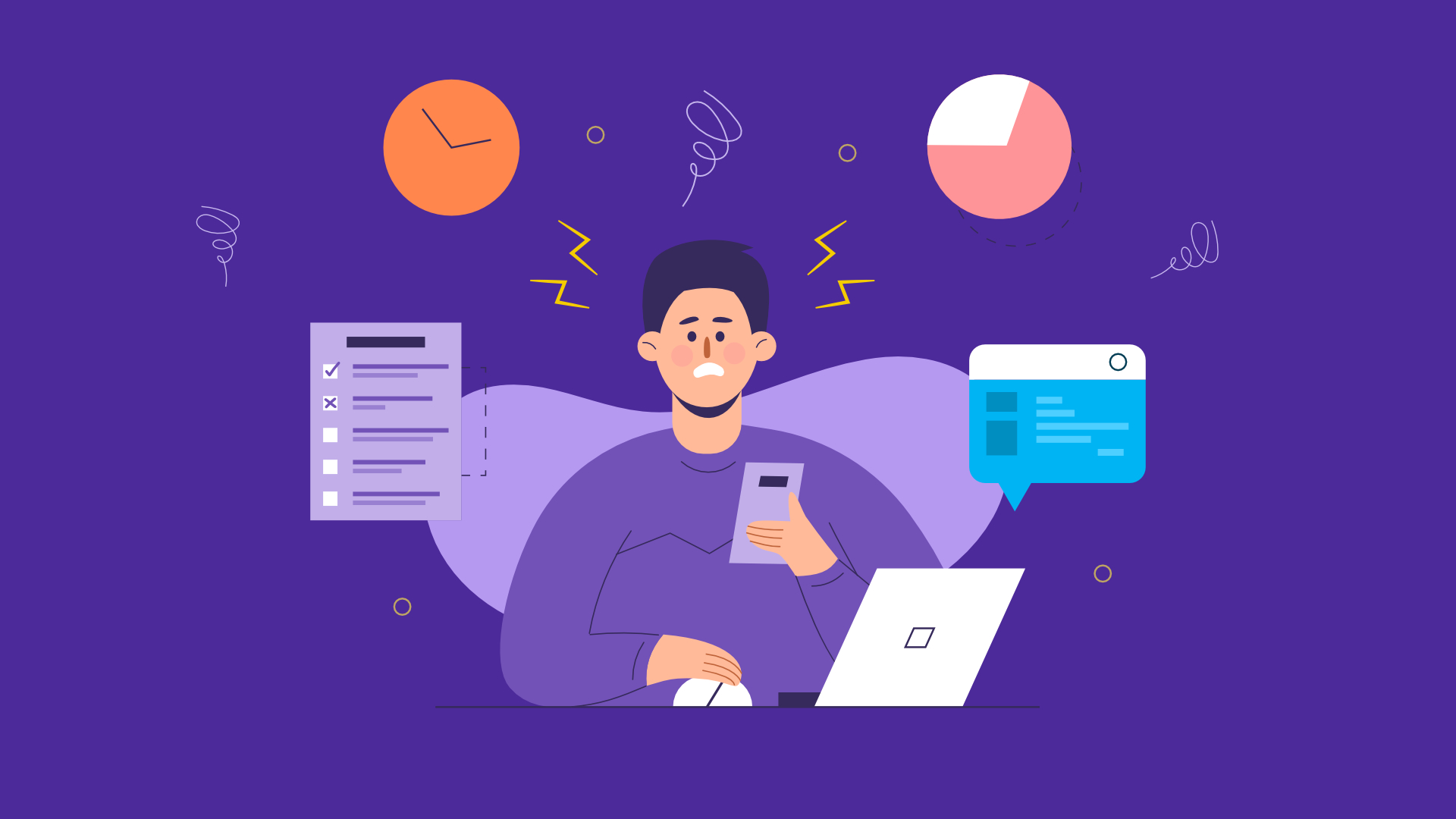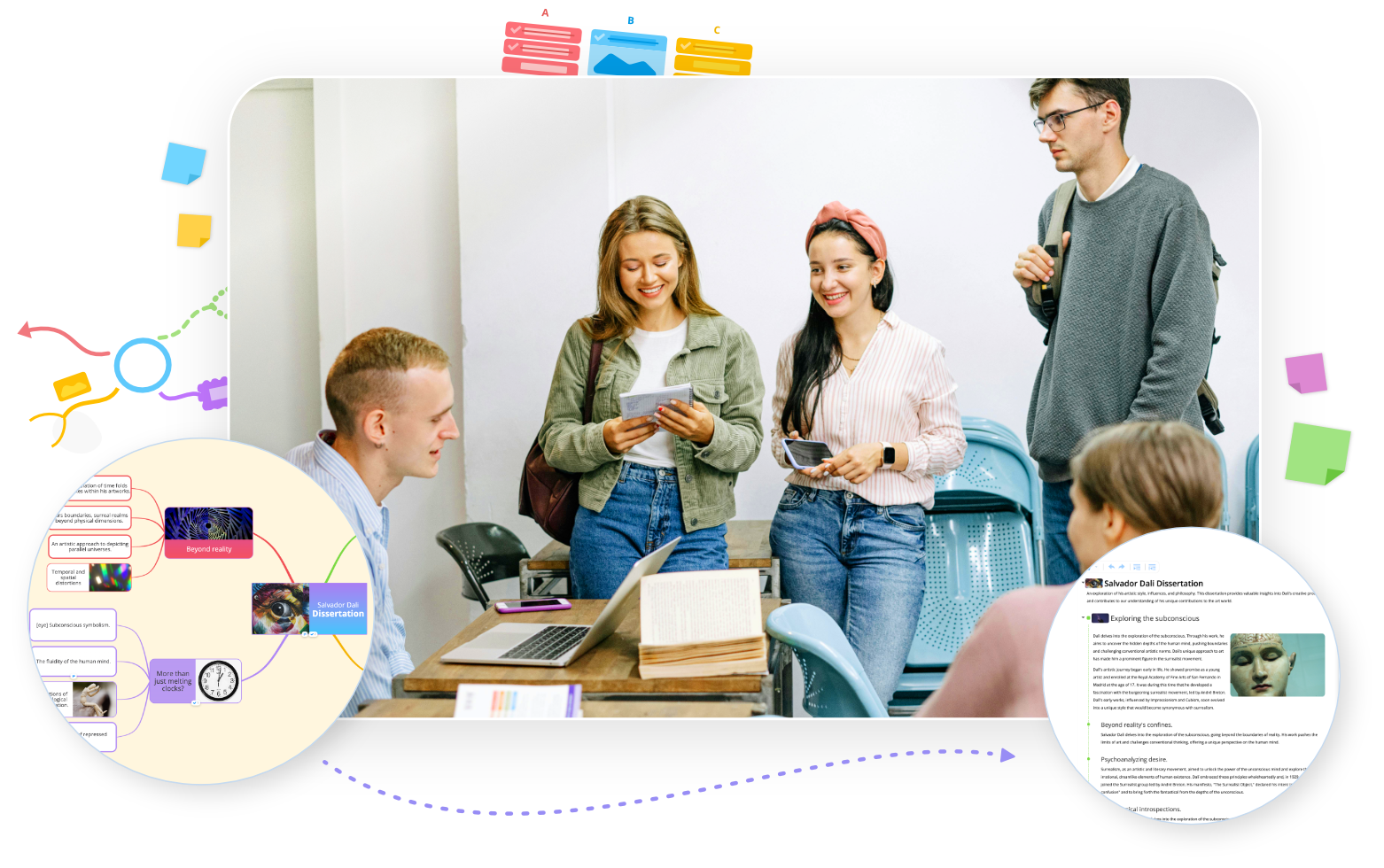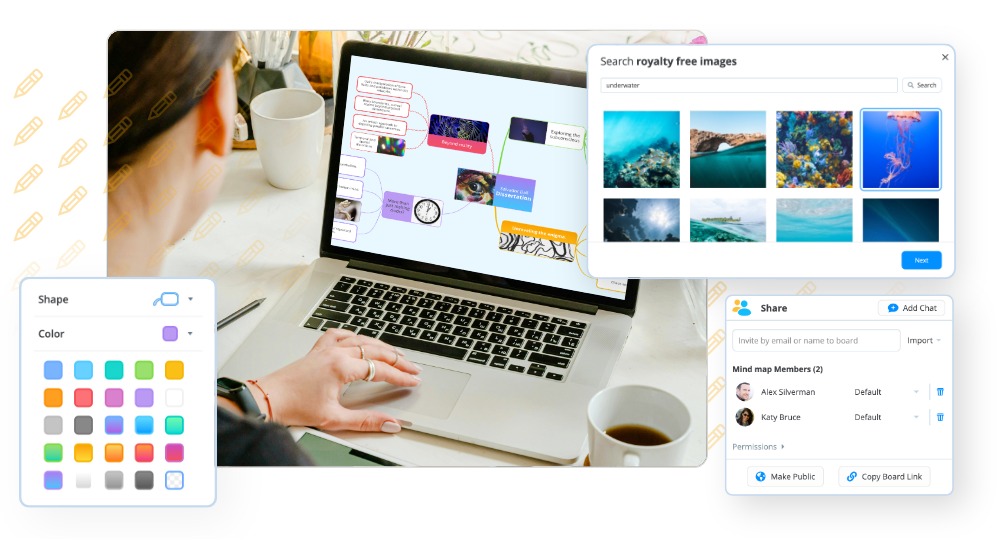In our busy, overstimulated world, finding focus can be a huge challenge. In fact, given the rise of burnout and stress – dwindling focus might just be the most common problem faced in the workplace today.
Whether it’s getting on with mundane tasks or undertaking a creative project, focus is always necessary to achieve our best at work. And – as with everything else in life – in order to improve in a particular area, you need real strategy to make a concerted effort to change. That’s why we’ve put together the following tips to help you find real focus in a busy world.
Be kind to your brain
Needless to stay, focus starts in the brain – and if your brain isn’t operating at its best, your focus will also be lacking. We’re much more likely to think of our overall physical health than our brain health, but when we slip into bad habits like not eating or sleeping well, our brain suffers too.
That’s why it’s essential you aim for a healthy overall routine, staying hydrated throughout the day, eating a balanced diet, and (most importantly of all) getting enough sleep. Studies have consistently shown that sleep deficit impacts a person’s attention, language and learning processing skills, and can even induce effects similar to drunkenness. So, if you’re looking to improve your focus – your brain health is a good place to start. Especially if it means you start taking your rest and sleep needs seriously.
Remove distractions
This may sound like an obvious point, but when was the last time you thoughtfully assessed your working area and set out to design one which truly works for you? This is about much more than neatening things up, but creating an actual setup which optimises your ability to focus – and this will of course look different for everyone. It might mean redesigning your desk to reflect your working personality (for example, if you’re easily distracted you might stick to a minimalist look) but it’s also about how you use this space.
If you sit at your desk to eat lunch, or continue to hang out there after the working day has finished, you’ll start to associate that area with more than just work, making it harder to tune into your focus when you sit down the next day. Of course, you should also be mindful of digital distractions – keeping your phone on silent while working, and if that’s not an option, getting a work phone to better maintain the personal/business boundary (especially if you have social media)!
Find your focus pattern
Research has suggested that the brain is only capable of a maximum of 45 minutes of truly concentrated work before the attention starts to wane. Of course, everyone has slightly different abilities and preferences when it comes to undertaking work and stopping for breaks. We also now know that breaks are incredibly important to achieving prolonged concentration, but what might be even more important is finding a working pattern that fits your attention needs.
There are a couple of different ways of exploring this – with the most important thing being uncovering what suits you. Most people already have a rough idea of whether they work best in sharp, intensive work sprints or over more prolonged periods of time. Trying different productivity hacks such as the pomodoro technique (25 minutes of work followed by a 5 min break) is a great way to see what style suits you. Just remember that while you’re still experimenting, keeping a work diary reflecting on your day is a great way to track your progress and get a true reflection of what is making you feel good, and what is leaving you uninspired.
Learn to really prioritise
Our modern workplace is dominated by a particular archetype: that is, the busy fool. Someone who is always busy, and may even work long hours, but is rarely productive in terms of actual output. If you recognise yourself in this character, don’t feel bad. Unfortunately so much of our modern workplace encourages this way of operating – it’s only by learning to prioritise properly that you can break free from this system and trailblaze a new one in order to achieve success.
Real prioritisation is not about firefighting, but a strategic approach to tackling your to do list. That means learning to consider the multiple facets which dictate how you prioritise a task – not only by deadline, but by the effort required, related stakeholders and overall scope – and building your day around this. It also means really locking into a task once you’ve started it. Turn off your email, and don’t take calls during this time. Distractions break your flow – real focussed work means dropping the multi-tasking act and giving all your attention to the work in front of you.
Make time for unfocused thinking
Finally, it may sound like a strange tip, but making time for the brain to be unfocussed will – believe it or not – improve your overall concentration. Specifically, through the act of daydreaming. A wide range of studies have shown that mind wandering has incredible cognitive benefits: boosting creativity, productivity and overall mood.
For this to work you need to (ironically) bring focus to your daydreaming session by fuelling up your subconscious beforehand. For example, if you’re struggling with a specific business problem, take some time to consider it before tuning out as this will give your subconscious mind something to chew on. Equally, if you’re looking for creative ideas in a particular area – you could spend some time creating mood boards or searching online for inspiration.
After that, your only job is to let your mind wander on its own. The kind of daydreaming which produces cognitive benefits is free-moving and notably distinct from worrying or dwelling. Many people find they can best achieve this state by doing something rhythmic like going for a walk or run, while others find that boredom can actually best prompt the mind to wander – so whether it’s getting on with some chores or going out for a stroll, make sure you clear some space in your day for focussed daydreaming.
In summary
Focus is not a magical talent which some have and some don’t. It is a skill which you can cultivate through effort and discipline. The benefits of real focus are endless – and refining it need not be a chore, but an exciting way to grow and achieve real success.
[eoc_general]


